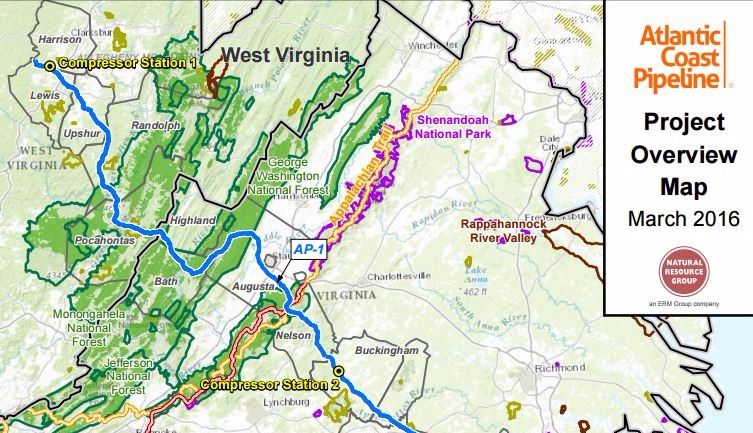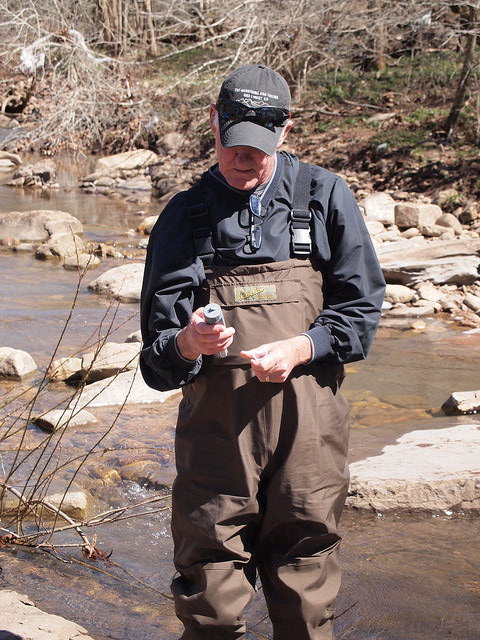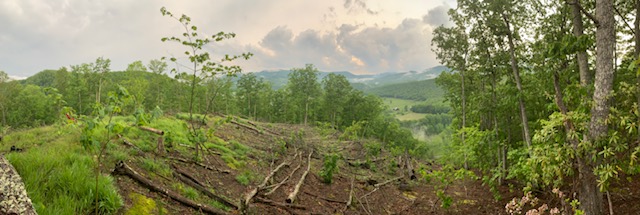Dominion and Duke Abandon the Atlantic Coast Pipeline
What does it mean for our water?
In early July, the news broke that the 600-mile Atlantic Coast Pipeline (ACP) was abandoned by parent companies Dominion and Duke, leading to a cancellation of the project. Read below to learn how we got here and what it means for our rivers and streams.
600-Miles and 491 Stream Crossings
The Atlantic Coast Pipeline was first proposed in 2014, starting in Harrison County then crossing through Lewis, Upshur, Randolph and Pocahontas Counties – cutting through the Monongahela National Forest – before continuing into Virginia and North Carolina. A project of this magnitude had never been attempted in this region.
The massive 42-inch pipeline would have slashed through rugged and steep terrain; crossing hundreds of rivers and streams, including some of the most pristine headwater areas of the state.
From its conception to the start of construction, WV Rivers, allied groups, and individuals, shared grave concerns on the impacts of large-scale pipelines on water quality and environmental health. After seeing the sedimentation and erosion that occurred with previous pipelines such as the Stonewall Gathering Line and the Rover Pipeline, we knew the Atlantic Coast Pipeline posed serious threats to recreation, water quality, and aquatic life. Learn more about stream crossings in our new report, Reducing Impacts of Pipelines Crossing Rivers and Streams.
A Grassroots Movement to Keep Streams Safe
Over the past 6 years, we attended public hearings and open houses, and hosted meetings in the communities impacted by the Atlantic Coast Pipeline. In partnership with Trout Unlimited, we developed a pipeline monitoring program and trained hundreds of volunteers to identify water quality impacts from pipelines and report their findings to regulatory agencies.
Prior to construction, and throughout the construction process, pipelines must receive permits from state and federal regulatory agencies. WV Rivers helped affected citizens comment on these technical and often confusing permits through our action alerts, Citizen’s Guide to Fracking Permits, and fact sheets, generating thousands of public comments on permits like the Federal Energy Regulatory Commission’s Environmental Impact Statement, the WVDEP’s Water Quality Certification and Stormwater Permit, and the United States Forest Service’s Special Use Permit.
Regulatory Failure
Throughout this process, we witnessed regulatory agencies tasked with protecting our environment bend over backwards to shuttle pipeline permits across the finish line. The Atlantic Coast Pipeline was allowed to quickly jump through the regulatory hoops without the proper analysis – permits were waived that were difficult to obtain, and permit requirements were changed to make it easier for ACP to move forward with construction. All of this done at the expense of thoughtful and responsible environmental protection.
Tree clearing for the ACP near Clover Lick in Pocahontas County. Photo by Tanner Haid.
In all of our comments, we requested thorough and detailed reviews to ensure our water was protected, but ACP did the minimum analysis necessary to receive the rubber stamp it needed to proceed. Construction began on the ACP in 2018, and from the start, our trained volunteers and partner organizations documented ACP’s failure to follow their permit requirements, resulting in polluted streams and numerous water quality violations.
During their short window of construction, the Atlantic Coast Pipeline cut approximately 100 miles of trees, dug 50 miles of pipeline trench, and laid about 20 miles of pipe.
Advocating for Streams in the Courtroom
With the environmental laws in place to ensure protections, we looked to the courts to confirm whether the project had followed the proper procedures. And in almost every case, the courts determined that corners were cut illegally and the permits were vacated. The ACP has been idle for over a year while they sorted out issues with their permits.
What Happens Now and What does it Mean for West Virginia’s Streams?
After 6 fraught years, the Atlantic Coast Pipeline’s parent companies, Dominion Energy and Duke Energy have finally faced reality and withdrew from the project. We’re still watching to see what happens next, but there are a couple scenarios that might happen: ACP might be forced to remove the abandoned pipe and reclaim the area; or another company may decide to try to finish what they started. Either way, we all need to stay vigilant to ensure that our rivers and streams are not further degraded by this disastrous project.
Sadly, the Atlantic Coast Pipeline is just one of several pipeline projects that skirted environmental laws.
Currently, the Mountain Valley Pipeline is battling the same legal challenges in West Virginia. Their Fish and Wildlife Incidental Take permit, Army Corps of Engineers Nationwide Permit 12, and National Forest Special Use Permit have been vacated by the courts pending further review and analysis. We strongly believe our regulatory process needs shored up to ensure environmental health remains a priority.
The candy darter is a newly listed endangered species that would be affected by the MVP.
It took 6 years, thousands of citizen comments, and legal challenges for the Atlantic Coast Pipeline to understand that there are consequences to their actions and they are not above the law. Hopefully, other pipeline companies attempting to short-cut environmental laws will learn from the Atlantic Coast Pipeline’s mistakes.
If you’d like to join WV Rivers in advocating for streams in the path of pipelines, please consider making a tax-deductible donation.







